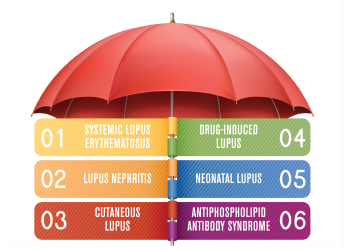
Ovchinnkov Vladimir / shutterstock.com
A recent study published in Lupus Science & Medicine lays out five of the top barriers impeding progress in lupus diagnosis and treatment.1
The Addressing Lupus Pillars for Health Advancement project (ALPHA), led by the Lupus Foundation of America (LFA), researchers at the Tufts School of Medicine Center for the Study of Drug Development (Tufts CSDD) and 13 international lupus experts representing the Global Advisory Committee, serves as the first global consensus on key issues in lupus.
“We cast the net very widely, thinking about where we are with lupus diagnostic delays, treatment options, access to care, clinical trials, and clinical and basic research—everything people with lupus are facing every day,” says senior author Karen Costenbader, MD, MPH, director of the lupus program at Brigham and Women’s Hospital, Boston, professor of medicine at Harvard Medical School, Boston, and chair of the LFA Medical-
Scientific Advisory Council. “Our key finding was that, of all the barriers, heterogeneity of the disease is among the primary, [because] it cuts across drug development, clinical care and access to care.”
In fact, respondents to the survey developed by the ALPHA project identified 30 diseases or disease terminologies related to lupus, reflecting a lack of consensus as to what constitutes the disease. Lupus nephritis, cutaneous lupus and antiphospholipid antibody syndrome were most commonly cited under the “lupus umbrella.”
“There are many different kinds of lupus—lupus that affects only the skin or only blood cells or only the brain,” says Dr. Costenbader. “Sometimes, it is labeled incomplete lupus or mixed connective tissue disease or undifferentiated connective tissue disease. The jargon gets people confused and, [although] we didn’t come to firm conclusions, it [may be] the first time people [were] thinking about what does and doesn’t go under the umbrella of lupus.”
For the study, the LFA and Tufts CSDD together identified criteria to establish the Global Advisory Committee, a geographically diverse group of professionals and thought leaders from industry, academia and patient advocacy. The committee brainstormed and formulated a list of barriers, developed in part by conducting 17 in-depth interviews with lupus professionals and patients. They conducted 127 surveys with experts in 20 countries to “prioritize the barriers and nail down what they are,” Dr. Costenbader says. “I think the results will be very useful in thinking about the road map to get resources to address barriers; here are what are the most challenging and here are the easiest to address.”
The survey included 23 questions and asked participants to rank the primary obstacles to lupus diagnosis, treatment, research and care according to their relative impact on delayed drug development, suboptimal clinical care, delayed access to care and inaccurate or delayed diagnoses, and to identify lupus-related disorders.
The top five barriers identified by ALPHA are:



